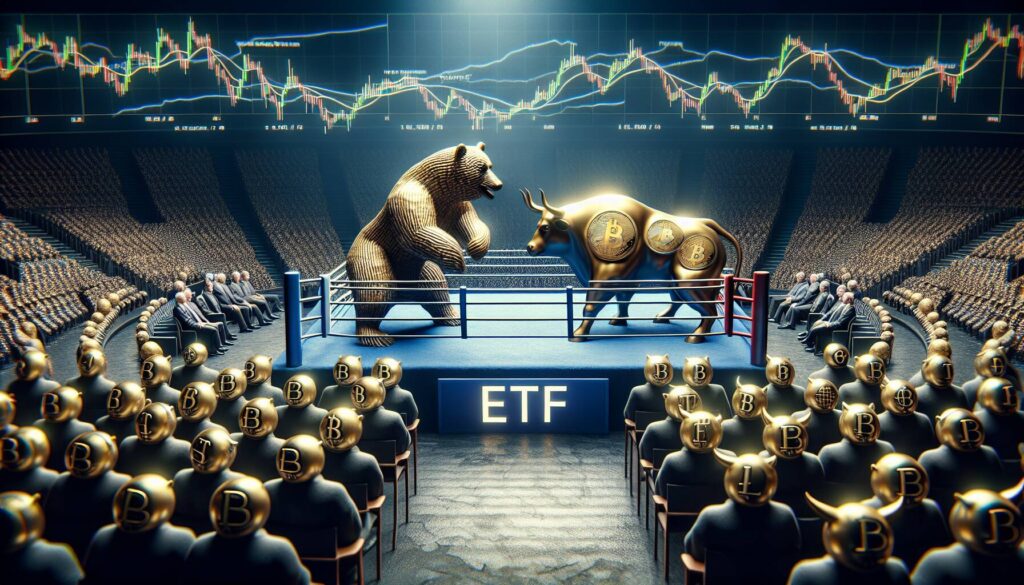The cryptocurrency industry is at a pivotal crossroads, as challenges posed by current U.S. regulations stifle innovation and accessibility in private-market investments. In a recent opinion piece for the Washington Post, Vlad Tenev, CEO of the digital brokerage Robinhood, highlighted a critical issue: many promising high-growth companies, such as OpenAI, SpaceX, and Stripe, are opting to stay private. This trend is creating a widening investment gap, limiting opportunities for everyday investors and reserving access to a select group of wealthy individuals.
Tenev argues that the emergence of tokenization, a process that utilizes blockchain technology, could revolutionize how retail investors access private equity. By digitizing shares of private companies into tokens, this shift would democratize investment opportunities, enabling access to innovative firms early on in their growth journey while ensuring proper disclosures and investor protections remain in place. “The world is tokenizing, and the United States should not get left behind,” Tenev passionately asserted, calling for an upgrade in the national dialogue around cryptocurrency beyond just bitcoin and meme coins. He envisions a future of ultra-inclusive investing tailored for the 21st century.
However, the path forward is complicated, primarily due to the lack of clear regulatory guidelines from the Securities and Exchange Commission (SEC) for registering security tokens. While markets in the European Union, Singapore, and Abu Dhabi are making strides in this area, U.S. regulators are lagging behind. Tenev’s proposal includes establishing a dedicated framework for security token registration, which would help facilitate tokenized assets and modify existing rules around accredited investors, allowing access based more on financial understanding than net worth.
“Tokenization is a booming sector at the intersection of crypto and traditional finance that could become a multitrillion-dollar market this decade,” Tenev noted, referencing research from prominent institutions like McKinsey and BlackRock.
With increasing interest from institutions and even governments to digitize real-world assets such as bonds, commodities, and real estate, the push for clear regulatory frameworks grows more urgent. Larry Fink, CEO of the trillion asset management giant BlackRock, recently echoed Tenev’s sentiments, emphasizing that tokenization represents the next significant frontier for financial markets, urging regulators to act swiftly in approving the tokenization of stocks and bonds. As the landscape evolves, the conversation around crypto is shifting, and the potential for tokenization could reshape the investment ecosystem for years to come.

Tokenization and the Future of Investment Access
The article discusses how current U.S. regulations are hindering the potential for everyday investors to access private-market investments through tokenization. Here are the key points that highlight the implications of this financial shift:
- Limited Access to Investments:
- Many high-growth companies like OpenAI and SpaceX are choosing to remain private.
- This trend restricts investment opportunities to a small group of wealthy investors.
- Tokenization as a Solution:
- Blockchain technology can democratize access to private equity, allowing early investments in companies.
- Tokenization would maintain necessary disclosures and investor protections.
- Regulatory Challenges:
- The SEC has not yet established clear rules for security token registration.
- Other markets, such as the EU and Singapore, are progressing in tokenization while the U.S. lags behind.
- Potential Market Growth:
- Tokenization could evolve into a multitrillion-dollar market over the next decade.
- Both institutions and governments are investigating tokenization of real-world assets.
- Influential Voices in Finance:
- Vlad Tenev and other leaders, like Larry Fink from BlackRock, are advocating for clarity in tokenized securities regulation.
- They view tokenization as a transformative approach for financial markets.
“The world is tokenizing, and the United States should not get left behind.” – Vlad Tenev
Understanding these key points can highlight the potential impact on readers’ lives by signaling shifts in investment access, which may empower individual investors to participate in previously inaccessible markets, transforming how wealth is created and distributed. As regulations evolve, readers could find new opportunities for investment beyond traditional methods.
The Future of Tokenization: Opportunities and Challenges in the U.S. Market
The snippet of analysis surrounding tokenization as proposed by Vlad Tenev of Robinhood underscores a pivotal shift in the financial landscape, offering a glimpse into the future of investing. One of the most compelling advantages of this approach is its potential for democratization. By tokenizing private equity, everyday investors could gain early access to high-growth companies that would otherwise remain exclusive to affluent investors. This move could significantly blur the existing investment gap, empowering a broader audience to participate in wealth creation.
However, the current regulatory environment presents a daunting barrier to this transformation. Tenev points out that while other regions, such as the EU and Singapore, are making strides in establishing frameworks for security tokens, the U.S. still lags behind. The SEC’s hesitation to delineate clear rules for tokenized securities casts uncertainty over the market, leaving both investors and companies in limbo regarding compliance. This indecision could stifle innovation, as firms may be reluctant to pursue tokenization without regulatory clarity.
The advantages of tokenization extend beyond just retail investors. Institutional players, like BlackRock’s Larry Fink, recognize the potential for a multi-trillion dollar market that includes not only equities and bonds but also real-world assets. Institutions could benefit immensely from the efficiencies provided by tokenization, such as faster settlements and increased liquidity. However, if regulatory barriers remain high, it could deter these institutions from exploring tokenized assets within the U.S., pushing them to markets with more favorable conditions, potentially leaving U.S. investors behind.
Furthermore, the implications of tokenization touch on the core of the investment ecosystem. By modifying accredited investor rules to prioritize financial literacy over wealth, Tenev emphasizes a need for inclusivity. Still, this proposal sparks debates about investor protections and the associated risks of allowing a less experienced demographic to access complex private-market investments. While democratizing investment opportunities is commendable, it raises the question of how to safeguard these individuals against potential pitfalls in the high-stakes arena of private equity.
The call for a clear security token registration framework, as advocated by Tenev, may serve as a double-edged sword. While providing guidelines could streamline processes and foster innovations, the intricacies and potential delays in regulatory approval could prolong the status quo. As firms and investors await clarity, the opportunity may well pass, allowing external markets to develop robust tokenization infrastructure while leaving the U.S. at a disadvantage.
In summary, the push for tokenization presents remarkable opportunities that could rejuvenate investment landscapes for everyday investors and institutions alike. Yet, navigating the regulatory quagmire replete with advantages and drawbacks could either propel or hinder this progress, significantly shaping the future for all stakeholders involved.
















